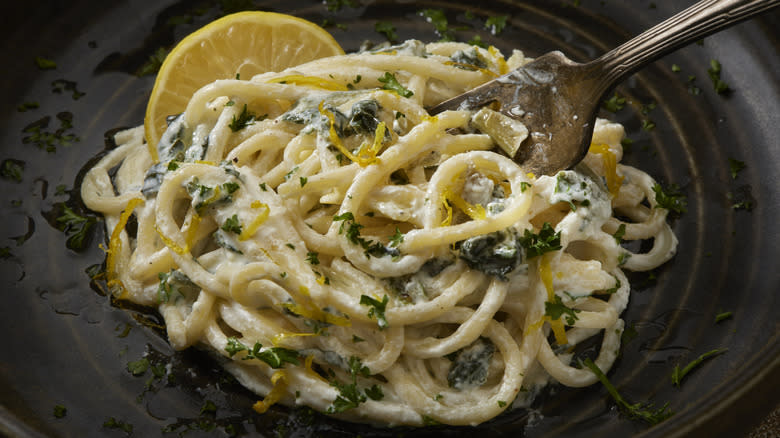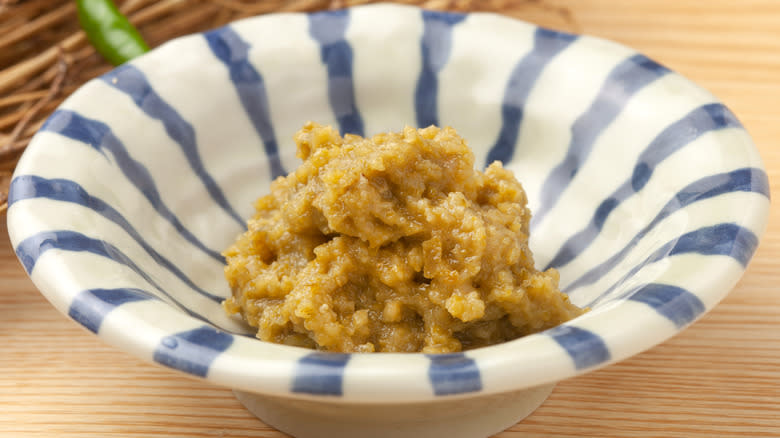The Expert-Approved Condiment You Never Thought To Use As Pasta Sauce

The best culinary creations often come from the unexpected. Pasta is a well-loved classic, but the repetition of tomatoes and Parmesan can feel monotonous. There is one expert-approved ingredient, however, that you would probably never think to add to pasta unless you are familiar with Japanese cuisine: yuzu kosho. Typically, yuzu kosho makes a great addition to ramen, but expert Namiko Hirasawa Chen believes it is equally delicious in pasta. Chen is the creator behind the popular Japanese recipe blog Just One Cookbook, where she highlights many Japanese ingredients like yuzu kosho.
Yuzu kosho is a versatile condiment whose power lies in its rounded yet bold flavor profile. It's a fermented paste of chili peppers, salt, and the zest of yuzu — an incredibly tart citrus fruit often likened to a cross between a lemon and an orange. Many Japanese dishes, including grilled fish, soups, and even desserts, utilize yuzu as a source of flavor and aroma. Yuzu's rind, in particular, is famed for its floral and citrusy notes — perfect for dressing up a summer cocktail or brightening up a recipe that otherwise calls for citrus. Yuzu kosho relies on that rind to balance out the heat from the chili and the fermented tang of the paste. You don't need much of this coveted condiment to make an impact. A little yuzu kosho goes a long way in upgrading pasta.
Read more: 16 Little-Known Facts About Salt
How To Use Yuzu Kosho In Pasta

According to Namiko Hirasawa Chen, it's not uncommon to find yuzu kosho in spaghetti dishes in Japan, where the condiment is added to the dish "at the end of cooking or when serving." Yuzu kosho and other Japanese ingredients can turn typically Italian pasta dishes into a fusion of flavors. "We call this type of dish 'wafu pasta,' typically seasoned with soy sauce or a concentrated base of tsuyu or mentsuyu instead of a tomato or cream base," Chen explained. "Wafu" means Japanese style in Japanese, and wafu Italian food is a distinct category in its own right that puts a unique Japanese spin on classic Italian dishes.
For inspiration, Chen described a plate of sautéed Japanese mushrooms tossed into spaghetti and seasoned with soy sauce and yuzu kosho. The earthy mushrooms will beautifully contrast with the spice and tang of the condiment; the perfect example of yuzu kosho in a pasta dish. Even familiar Italian dishes, like a simple pasta carbonara, can become more vibrant through a few added teaspoonfuls of yuzu kosho.
Those interested in trying yuzu kosho can make it at home, but Chen recommends this only if "you have access to a lot of fresh yuzu in your garden or can purchase [yuzu] from Japanese grocery stores." Yuzu is not in season for long (only during the middle of winter), so a store-bought yuzu kosho is often the best option.
Read the original article on Mashed.


